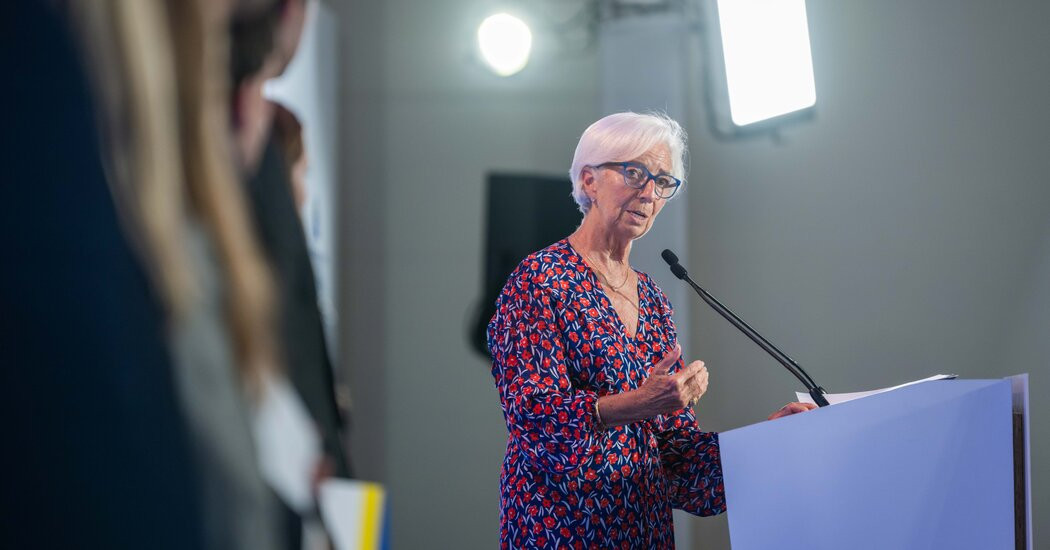

Central bankers who gathered in Portugal this week focused on ways that Europe could improve its competitiveness with the United States and China.
Among central bankers, the word “uncertainty” is at risk of becoming a cliché, as they run out of ways to convey the heightened volatility they face trying to set interest rates, from trade policies to escalating conflicts in the Middle East. They’ve reached for “exceptional uncertainty” and “unpredictability.”
Despite these worries, the policymakers and other economists who gathered this week in Sintra, Portugal, for the European Central Bank’s annual conference had an air of calm.
It helped that as the main day of the conference got underway on Tuesday, data showed that inflation in the euro area averaged 2 percent in June, matching the central bank’s target. For the three previous years, inflation was firmly above the target and the European Central Bank had engaged in an aggressive campaign to bring it down.
“We are at 2 percent,” Christine Lagarde, the E.C.B. president, said. “I’m not saying mission accomplished, but I say target reached.”
Rather than fret more about inflation, the attendees focused on the steps that the region should take to improve its competitiveness with both the United States and China, like making it easier for people to move jobs and access capital across borders. Many of the ideas have circulated for years, but this time there was hope that European lawmakers would follow through with action.


![[GOOD PRESS] ON[GOOD PRESS] ON](https://georgemagazine.com/wp-content/uploads/2024/08/16389056566437433941_2048-300x300.jpeg)
